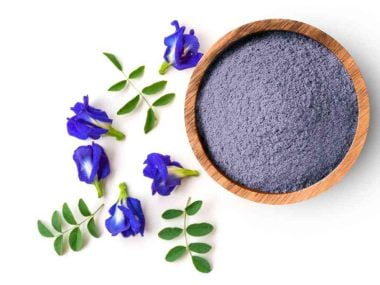Berries are renowned for their exceptional nutritional profile, boasting high levels of fiber, vitamin C, and antioxidant-rich polyphenols. By incorporating berries into your diet, you may effectively safeguard against various chronic diseases while mitigating their symptoms.
These delightful fruits are in various colors, predominantly blue, red, or purple. With their small, soft, round appearance, berries offer a delectable blend of sweetness and sourness—no wonder they are frequently used in preserves, jams, and mouthwatering desserts.
Blueberries
The alluring deep blue hue of these berries adds charm to pies and signifies the presence of potent compounds known as anthocyanins. These antioxidants offer potential protection against cancer, heart disease, dementia, and an immune system boost.
However, further research is essential to understand their benefits entirely. Savor these succulent gems, fresh or frozen, as they provide a satisfying combination of water and fiber without disrupting your diet, with just about 40 calories per half-cup serving.
Acai Berries
Pronounced “ah-sigh-EE,” these grape-like fruits have earned the title of “superfood” due to their purportedly higher antioxidant content compared to other berries. These nutrients are vital in combatting cell damage that could lead to various diseases.
Nonetheless, more comprehensive research is required to determine the extent of their potential benefits.
While you can enjoy fresh or frozen acai berries, it’s crucial to consult your doctor before considering them as supplements, as large doses can be harmful and may interact with certain medications.
Avocado
Avocados, surprisingly, fall under the category of single-seeded berries. Their luscious green flesh is a treasure trove of vitamins, minerals, and healthy fats, making them beneficial for heart health, supporting weight loss efforts, and promoting overall well-being as you age gracefully.
Enhance your meals by slicing avocados and adding them to salads, blending them into delicious smoothies, or replacing mayonnaise with their creamy goodness on sandwiches. Nevertheless, moderation is vital, as one serving equals 1/5 of an avocado.
Blackberries
Loaded with polyphenols, blackberries possess potent chemical compounds that hold the potential to reduce inflammation associated with heart disease and cancer.
Furthermore, these berries might aid in the breakdown of sugar in the small intestine, potentially lowering the risk of developing type 2 diabetes. For optimal nutritional benefits, enjoy blackberries fresh or frozen, as they contain a minimal amount of sugar, providing just 7 grams per cup.
Beware that canned blackberries in heavy syrup can pack over 50 grams of sugar. Additionally, boysenberries and marionberries belong to the blackberry family.
Strawberries
The delightful heart-shaped strawberries are a treat for the taste buds and a storehouse of essential nutrients, including vitamin C, folic acid, fiber, and antioxidants.
These nutrients may contribute to lowering high blood pressure and cholesterol, regulating blood sugar levels, and even combating the effects of aging on the brain. Due to their perishable nature, it’s best to purchase strawberries frequently.
Avoid washing or hulling them for maximum health benefits until you’re ready to enjoy these delightful fruits.
Goji Berries
Wolfberries, also known as goji berries, are significant in Chinese medicine, boasting thousands of years of history. Rich in vitamins C, B2, and A, iron, and antioxidants, these berries have garnered interest from scientists for their potential immune-boosting, heart-protective, brain-enhancing, digestion-aiding, and cancer-preventive properties.
However, concrete evidence to support these claims still needs to be discovered. It was consuming them only when fully ripe is crucial, as unripe berries may be toxic.
Additionally, it is best to avoid consuming wolfberries if you are pregnant, nursing, or taking blood thinners.
Cranberries
Cranberry juice is often sought for its potential to alleviate urinary tract infections (UTIs). While it may not treat UTIs, cranberry supplements are being investigated for their potential to reduce the likelihood of future conditions. T
hese berries may decrease the adherence of bacteria in the stomach, thereby minimizing the risk of infections. Researchers are also exploring the potential of cranberries in cancer prevention and heart health improvement.
However, it is essential to monitor the intake of cranberry juice, as excessive consumption may lead to stomach upset and kidney stones.
Aronia Berries
Dark purple aronia berries, also called chokeberries, boast a rich profile of vitamins, minerals, and essential nutrients. As such, researchers are investigating their potential in preventing cervical, skin, breast, and colon cancers.
Studies are also underway to explore their role in combating liver and heart disease and obesity. You can find fresh or frozen Aronia berries in stores, also used to create aronia-infused tea.
Elderberries
Elderberries have been traditionally used for centuries to combat colds and flu. Some studies suggest that elderberry extract may reduce flu symptoms if taken during the early stages of the illness.
However, it is crucial to consume only cooked elderberries, as raw berries and leaves can be harmful.
Pregnant or breastfeeding women and individuals with immune system issues should avoid elderberries altogether. Moreover, if you take diabetes medicines, diuretics, or laxatives, it is also best to avoid using elderberries.
Red Raspberries
Centuries ago, as early as A.D. 4, raspberry plant parts were employed to alleviate morning sickness and stomach pain.
Today, we recognize the power of the berries themselves. Raspberries boast a wealth of nutrients that may combat various types of cancer and protect brain health.
While diet supplements may contain some beneficial substances, indulging in fresh raspberries is the best way to reap their numerous advantages.
Cloudberries
In just a 2/3-cup serving, these peach-colored berries offer twice the vitamin C content of a glass of orange juice. Laden with antioxidants, cloudberries often find their way into skin care products for their skin-nourishing properties.
For optimal flavor and freshness, it’s best to consume the berries on the day of picking. However, you can also freeze them for extended storage of up to 2 years.
Kiwi berries
This berry resembles their fuzzy egg-shaped relative, the kiwifruit; these grape-sized berries are comparable in taste and nutritional value.
Kiwi berries make for a quick and sweet snack, packed with lutein for eye protection, zinc for healthy skin, hair, and nails, and potassium to enhance workouts. The fuzz-free skin makes them effortlessly enjoyable.
Bilberries (Huckleberries)
Bilberries have garnered a reputation for improving vision, with World War II pilots consuming bilberry jam to enhance their night vision.
Although their extract may help prevent eye problems like macular degeneration and cataracts, further research is required for conclusive evidence.
Consult your doctor before considering bilberry extracts or supplements, but take advantage of the delightful sweet-tart flavor of fresh bilberries in late summer and early fall.
Ginseng Berries
While ginseng root is commonly used in Chinese medicine, ginseng berries also exhibit promising properties. Studies on mice have shown potential in lowering cholesterol, fighting cancer, and reducing gut inflammation.
For those with diabetes, ginseng berry juice may aid in blood sugar and weight management.
Additionally, ginseng berry extract has made its way into skin products for its potential to combat skin damage and the effects of aging.
Gooseberries
Gooseberries come in various colors, including light green, pink, or red when ripe. In India, a specific type known as amla has been traditionally used to treat colds, fever, aid digestion, and serve as a hair tonic.
Preliminary evidence suggests these berries may possess anticancer properties, promote liver health, prevent osteoporosis, and treat infections and parasites.
However, more extensive research is warranted. Enjoy them fresh or cooked, but consult your doctor before considering supplements.






